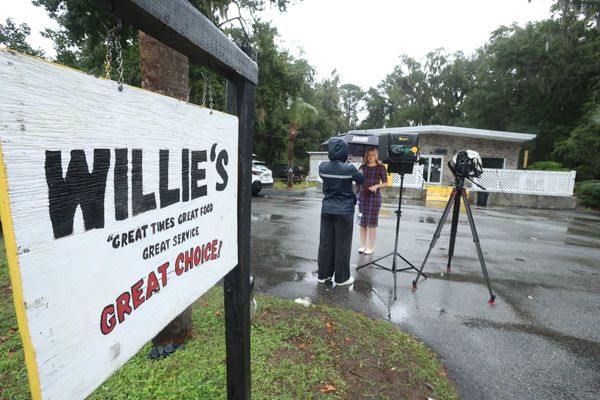Marijuana stocks fell sharply Wednesday, after voters in five states approved cannabis legalization ballot measures but federal elections remained in doubt.
New Jersey, Arizona, Montana and South Dakota on Tuesday approved ballot measures to legalize recreational marijuana. South Dakotans also backed creating a medical marijuana program for people with severe medical conditions.
Meanwhile, Mississippi voters approved legalizing cannabis for medical use.
White House, Senate Unclear
As of early Wednesday morning, the presidential election was too close to call. President Donald Trump has fared better than expected, winning Florida. But Joe Biden is closing the gap in key states that could give him the Electoral College victory. It may take days to count all the votes in pivotal states.
Meanwhile, Republicans stand a good chance of holding onto the Senate, though several races remain close.
Wall Street had been preparing for a Biden victory and for power in Congress to tilt toward the Democrats.
Cannabis Legislation In Congress
As a result, analysts had been preparing for the prospect of cannabis decriminalization, something Biden said he supports. A Democrat-controlled Congress also would be likelier pass laws that give the industry banking access, ease tax burdens. And to keep the federal government out of states' marijuana laws.
Democrats are also likelier to try to legalize cannabis to some degree federally. That could kick open the gates for Canada's big licensed producers to enter the world's biggest pot market.
Still, legalization in Canada hasn't prevented big licensed producers there from losing money. U.S. companies have laid off employees and faced deepening debt and cash struggles.
Legal Complications
Bob Hoban, founder and president of Hoban Law Group, said federal decriminalization wouldn't make doing business or expansion into new states any easier for U.S. cannabis businesses. Rescheduling the substance could bring more regulations that could prevent dispensaries from running the way they do today.
He also said outright nationwide legalization posed complications for the industry as well. When pot companies move into new states, they often have to build new supply chains from scratch, given that weed is still federally illegal. Streamlining that process could cost the industry jobs.
"I would argue that creating a supply chain inefficiently state by state by state is probably very good for the industry," he said. "Why? Because it creates more jobs. It eliminates efficiencies. We can't just put all of our growth facilities in Kansas, and then distribute them around the country."
Even if Biden ultimately wins the White House and Democrats ultimately take control of the Senate, change could be slow to come. Not all marijuana stocks stand to gain equally from the results, some analysts say.
"We believe the US elections could spark meaningful regulatory changes for U.S. cannabis, but our covered companies look positioned to benefit very unevenly," Piper Sandler analyst Michael Lavery said in a research note on Monday.
Join IBD experts as they analyze actionable stocks in the stock market rally on IBD Live.
Marijuana Stocks Fall
Among the big Canadian marijuana stocks that trade on major U.S. exchanges, Canopy Growth fell 7.1% Wednesday. On Tuesday, Canopy Growth stock fell 2.2% to 20.46, back below a 20.54 handle buy point from a five-month consolidation that mostly formed below its 200-day line. CGC stock surged more than 11% on Monday.
Also early Wednesday, Aphria edged down 0.4%. Aurora Cannabis retreated 9.8%. Tilray sank 9.4%. Cronos Group fell 8.3%.
U.S. marijuana companies that trade over the counter were mixed. Among U.S. marijuana stocks, Curaleaf fell 1.45% to 9.76 in the stock market today. The stock has unercut a 9.80 buy point from a cup base after reclaiming that entry on Monday.
Cowen analysts said Curaleaf would likely benefit the most from more legal states, given its business in New Jersey and Arizona. The company has operations in 23 states, with 95 dispensaries and 22 cultivation sites. Stifel has estimated that Curaleaf is the largest cannabis company in the U.S.
Curaleaf also led the industry in legal cannabis retail sales in New Jersey, Cowen said. New Jersey legalized medical marijuana in 2010.
As for other companies that make and sell weed in multiple legal states, Acreage Holdings (OTC:ACRDF) fell 2.8% on Wednesday, while Green Thumb Industries (OTC:GTBIF) added 3.6%. Cresco Labs (OTC:CRLBF) climbed 0.5%.
Growing U.S. Market
Cowen analysts said they expected legal U.S. cannabis revenue to reach nearly $34 billion by 2025, provided the legalization measures across the five states passed.
The analysts pegged New Jersey and Arizona as the two biggest prizes on the state legalization ballot this year, given their larger populations. They also noted Green Thumb and Acreage have exposure to New Jersey. Cresco Labs has exposure to Arizona.
Curaleaf CEO Joe Lusardi, in an interview, said he felt New Jersey was among the biggest accelerants for the industry, with the potential to put pressure on New York, Pennsylvania and Connecticut to legalize.
Lusardi said Curaleaf planned "significant expansions" in cultivation and manufacturing in New Jersey. New Jersey's medical licensing system currently limits companies to three stores in the state. Recreational rules are still being laid out.
Cresco Labs CEO Charlie Bachtell said he was waiting to see how the state's regulatory framework came together. The company, he noted, operates in Pennsylvania and has a license to do business in New York.
"Each one of these incremental state-level decisions has a macro impact at a federal level," Bachtell said of Tuesday's votes.
Easier Compromises?
Nationally, Lusardi said that even without a blue wave in Congress and the White House, a split legislature or divided government could bring more compromise on reform, particularly as it relates to banking access.
Allowing the industry to connect with national, money-center banks could lower the costs of borrowing and make it easier to access capital overall. It would also streamline the way many cannabis businesses — which often shuttle around a lot of cash and strike arrangements with an array of smaller banks — manage their money.
"We literally have to manage 20 banking relationships," Lusardi said of Curaleaf, which works with state-chartered banks. Along with labor costs at those banks, he said, "each bank has to go through a very extensive due diligence process. They need to make sure that the company they're banking with actually is compliant with state law."
"It's a lot of work on both sides, at the setup, and ongoing," he said.
Canada And A Legal U.S.
Lavery said federal legalization would allow Canada's pot companies to advance southward. But he noted that push could take time.
"Even so, (licensed Canadian producers) would still need to secure licenses to operate in each state and build infrastructure to supply and distribute products, which likely takes time and capital," Lavery said in the note.
He said Canopy Growth was "advantaged" in the U.S., compared to other marijuana stocks. Canopy already has a deal to buy Acreage Holdings when pot becomes legal nationwide. Acreage runs 28 dispensaries in 15 states, and has licenses for 72 stores, he said.
Cronos Group, he noted, has a partnership with California-based weed retailer MedMen. Its former CEO and current executive chairman, Mike Gorenstein, founded Gotham Green Partners, an investment firm that has served as a big lender to MedMen. But he said Cronos would need to build up production.
Canadian pot companies have already tried to enter the legal hemp market in the U.S. But the coronavirus pandemic's restrictions on retailers that sell CBD, which comes from hemp, and confusion on regulations have complicated those efforts.
Key Ballot Measures: Marijuana Legalization, Sports Betting, Ride Hailing
Illicit Competition For Marijuana Stocks
Still, as in Canada, which legalized recreational weed in 2018, the U.S.' legal industry faces competition with the illicit market, where product has been cheaper. Marijuana stocks have largely fallen over the past two years.
Acreage Holdings earlier this year cut staff and scrapped deals. MedMen — known for its Apple-Store-like dispensaries, before it also became known for allegations of excess — has also laid off employees.
MedMen recently had its price target lowered to zero by Canaccord. MedMen's most recent quarterly results, reported last month, "cast significant doubt on the company's ability to execute its turnaround strategy to reach profitability and/or be able to meet its longer-term capital obligations," Canaccord said.
Some of those results during the quarter were hurt by the pandemic, as well as the broader civil unrest this year after the death of George Floyd.
Sales in California, MedMen said, fell 44%, "primarily due to the impact of Covid-19 on store traffic and tourism and temporary store closures in June due to rioting and looting."







